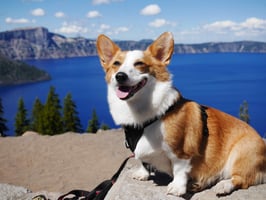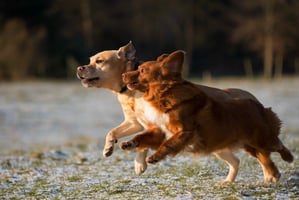Are you worried about your dog not eating dog food? Is it a cause for concern? This article will...
Why Isn't My Dog Eating His Food?
Is your beloved pup refusing to eat their food? This article will help you identify the most common causes of dogs not eating their food and provide solutions to help get them back on track. From changes in their diet to underlying medical conditions, we’ll address all the potential causes and provide advice on how to get your pup back to eating normally.
Changes in Diet
One of the most common reasons for dogs not eating their food is a change in diet. Dogs, like humans, can be picky eaters and may not like the taste or texture of their new food. If you’ve recently switched your pup to a new food, they may be refusing to eat it due to the taste or texture.
If you’ve recently switched your pup’s food, try switching back to their old food. If they’ve been eating the same food for a while, try introducing a new flavor or texture. You can also try adding something to the food to make it more palatable, such as wet food or canned food.
Always introduce any new food slowly. Introduce small amounts of the new food and gradually increase the amount over time. This will help your pup adjust to the new food and may help them start to enjoy it.
Underlying Medical Conditions
If you’ve ruled out changes in diet as the cause of your pup not eating their food, it’s important to consider any underlying medical conditions that may be causing them to refuse to eat. Certain medical conditions can lead to nausea, loss of appetite, or difficulty chewing or swallowing, which can lead to dogs not eating their food.
If you suspect your pup may have an underlying medical condition, it’s important to take them to the vet for a thorough examination. The vet can help diagnose the underlying cause and provide treatment to help get your pup back to eating normally.
It’s important to note that some medical conditions can be serious, so it’s important to take your pup to the vet as soon as possible.
Stress and Anxiety
Stress and anxiety can also be a cause of dogs not eating their food. Dogs can become stressed or anxious for a variety of reasons, such as changes in routine, a new environment, or the presence of other animals.
If you suspect your pup may be stressed or anxious, there are a few things you can do to help them. Try to keep their environment as calm and stress-free as possible. If they’re having trouble adjusting to a new environment, introduce them slowly and give them time to adjust.
You can also try using calming aids such as pheromone diffusers or calming supplements to help reduce your pup’s stress and anxiety.
Loss of Appetite
If your pup is not eating their food, it’s important to consider whether they may have lost their appetite. Dogs can lose their appetite for a variety of reasons, such as changes in diet, stress, or underlying medical conditions.
If you suspect your pup may have lost their appetite, there are a few things you can do to help. Try feeding them smaller meals more often, as this can help stimulate their appetite. You can also try adding something to their food to make it more palatable, such as wet food or canned food.
If your pup continues to not eat their food, it’s important to take them to the vet for a thorough examination. The vet can help diagnose the underlying cause and provide treatment to help get your pup back to eating normally.
Conclusion
Dogs not eating their food can be a frustrating and worrisome experience for pet owners. However, by understanding the potential causes and taking the necessary steps to address them, you can help get your pup back on track. From changes in diet to underlying medical conditions, there are a variety of potential causes of dogs not eating their food. It’s important to take your pup to the vet if you suspect they may have an underlying medical condition, as some medical conditions can be serious. Additionally, you can try introducing new foods slowly, using calming aids, and adding something to their food to make it more palatable. By understanding the potential causes and taking the necessary steps to address them, you can help get your pup back to eating normally.



